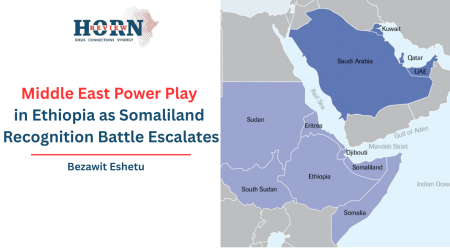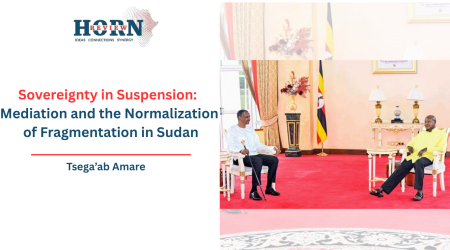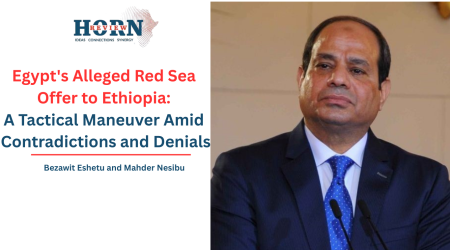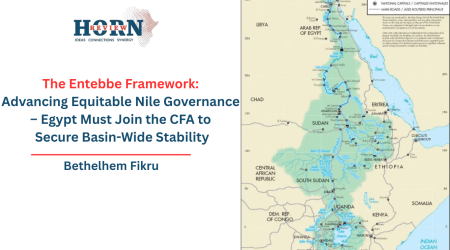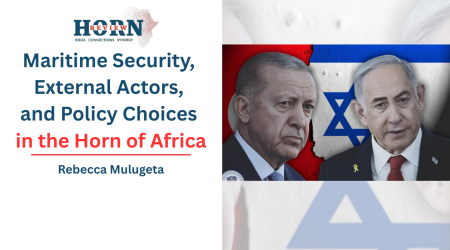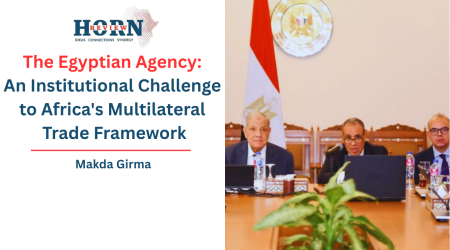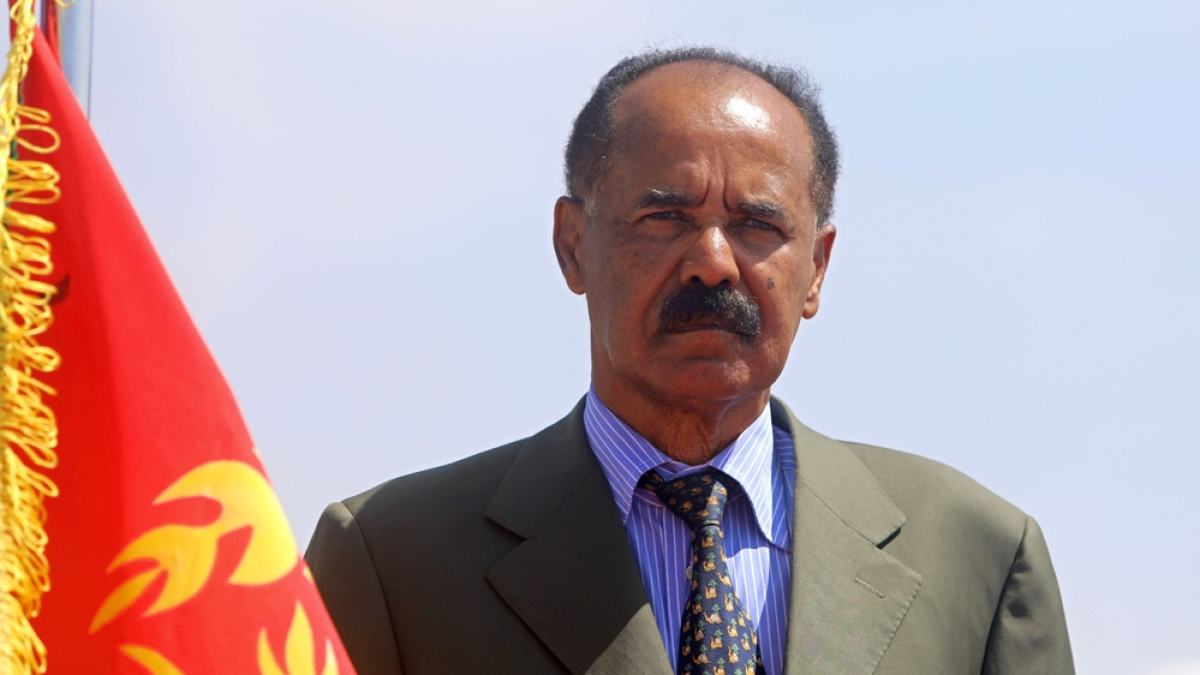
30
Jul
The Panopticon Republic: Eritrea’s Invisible Chains
The concept of the panopticon was first coined by Jeremy Bentham, an English philosopher, in the late 18th century. He imagined a circular prison in which guards stationed in a central tower could observe all inmates without the prisoners ever knowing whether they were being watched. Michel Foucault later used this idea in his 1975 book, Discipline and Punish, as a metaphor for how modern power functions not through constant force, but through surveillance and self-regulation. According to Foucault, this “panopticism” instills discipline by making individuals internalize the presence of authority. The prisoner is “seen, but he does not see; he is an object of information, never a subject in communication.”
This metaphor reveals something profound: surveillance doesn’t need to see you, it just needs you to believe you are seen. The result is self-censorship, obedience, and the internalization of fear. This is how modern power operates, not through chains, but through mirrors.
This is what makes Eritrea the closest living example of a Panopticon State, not in the digital or Orwellian sense, but in the framework theorized by Foucault of internalized surveillance. Eritrea has taken this logic to its extreme, where fear has replaced law, and silence has replaced dissent.
The Spectral State: Rule Through Absence
Eritrea is governed by what can only be called negative sovereignty. Unlike many autocracies that project power through propaganda or performative elections, Eritrea rules by withdrawal of visibility. There is no active constitution; the 1997 document remains indefinitely suspended. There is no functioning parliament, no free press, and no public record of laws. Ministers exist in name only; ministerial titles are empty. President Isaias Afwerki governs through deliberate ambiguity. What is permitted or forbidden is never made clear, making every word and every action a potential offense.
In this system, opacity itself becomes power. By withdrawing from the public sphere, the state becomes omnipresent in the public imagination. Citizens obey not because they are watched, but because they suspect they might be. This is control through suggestion, not coercion.
Fear Networks: The Atomization of Society
Inside Eritrea, social life has been dismantled under the weight of mutual suspicion. Teachers report on students. Students inform peers. Children are used to monitor parents. The community networks that struggled to be free from totalitarianism and injustice from the PDJF have been hollowed out.
This is social atomization, a technique of authoritarianism where the citizen is isolated from collective identity. The regime doesn’t need sophisticated or high-tech surveillance. It has weaponized trust. No gatherings. No civic or religious autonomy. Every person is a potential informant. Every silence is loaded. As Hannah Arendt observed in The Origins of Totalitarianism, total control is only possible when human relationships themselves are destroyed.
A State of Mutual Paranoia
In Eritrea, the state does not rely on secret police in the shadows; it turns citizens into surveillance nodes. As testimonies reveal, citizens are recruited through coercion or paid into informal spy networks to spy on coworkers, neighbors, and even family members. Neighbors monitor neighbors. A vague statement, a skeptical glance, or even facial expressions can become incriminating. This is not merely a police state. It is a state built on mutual paranoia, where everyone is both prisoner and guard.
Time as a Weapon: Indefinite National Service
Eritrea’s indefinite national service is not just forced labor; it is temporal authoritarianism. Teenagers, often conscripted while they are still in school, are placed into indefinite military or civil assignments without a clear end. They build roads, work in ministries, or serve in isolated garrisons. Many remain trapped for decades.
This crushes political agency by arresting the future. People do not plan families, careers, or resistance. They wait. As one refugee told a UN commission, “We do not live in Eritrea. We pause.”
When a young man escapes military service and crosses into Sudan, his family receives a fine they can’t pay. The punishment is not about law enforcement, it’s about collective fear. A single act of defection becomes a multi-generational liability. This practice transforms dissent into an economic crime and obedience into survival.
Structural Gaslighting: Law Without Law
Eritrea’s legal system is not absent; it is performative. People are arrested without charges, detained without trials, and transferred between secret prisons. This is not lawlessness in the anarchic sense, but rather a simulation of legality designed to confuse and disorient.
Citizens live in a fog. They fear violating rules they’ve never been shown. They hesitate to ask questions because asking, too, is suspicious. This is structural gaslighting: a condition where power makes individuals doubt their understanding of right and wrong, legal and illegal, real and unreal.
Emotional Authoritarianism: The Diaspora and the Mind in Exile
Eritrea’s psychological control extends beyond borders. In the diaspora, especially in Europe and North America, Eritreans remain silent. They avoid political discussions. Some refuse to speak to journalists. Many fear that voicing dissent could result in retaliation against family back home.
As documented by Mounier Kuhn in an interview with Eritrean refugees in Switzerland described the political situation in their country was described to a journalist in the following way: “You cannot speak about politics in Eritrea, even within your family circle” (Mounier-Kuhn 2009). Even in exile, the mind remains in prison. Diaspora communities police themselves. The Panopticon does not need cameras or agents. It survives in memory and emotion.
“Even here, we cannot have trust in each other. All of the exiles have claimed political asylum, but most of them refuse to denounce the current Eritrean government. They do not fear for themselves, but they have concerns about their families living in Eritrea” (Mounier-Kuhn 2009).
Even outside its borders, Eritrea maintains its psychic grip. The diaspora is riddled with suspicion. Regime-aligned youth groups attend events. Dissidents are photographed. Embassies demand a ‘diaspora tax’ from exiles, 10% of their income in exchange for basic consular services. In this transnational Panopticon, exile offers no immunity, only a different terrain of fear.
Even in Stockholm and Frankfurt, young Eritreans whisper. They check over their shoulders in cafes. Some refuse to speak even off the record. One refugee told a reporter, “We grew up learning that silence keeps your family safe.” This is the final frontier of authoritarianism: when your mouth is free, but your memory is not.
Post-Ideological Authoritarianism: Nothing to Believe In
Unlike regimes that justify power through ideology, nationalism, development, or revolution, Eritrea offers nothing. Isaias Afwerki has no manifesto, no party congress, no platform. There is no charismatic leadership. No utopian promise. No national vision.
This is post-ideological authoritarianism: a system that offers no future and no alternative. Eritreans cannot be disillusioned because they are not allowed to believe in anything. That very absence makes the system unbreakable.
The Rhetoric of Projection: Silence Through Noise
In a recent ERI-TV interview, President Isaias Afwerki launched a barrage of criticisms against Ethiopia’s domestic politics, questioning federalism, denouncing elite fragmentation, and painting a picture of instability across the border. His appearance offered a curious political moment not for what he said, but for what he refused to say.
He offered sharp commentary on Ethiopia’s internal politics, but not once did he mention Eritrea’s politics. Because in a Panopticon State, there is no politics to speak of.
This is more than deflection. It is a political projection. Isaias speaks of Ethiopia’s flaws while having ruled Eritrea for more than 30 years without elections, a parliament, a budget, or a legal framework. He critiques external instability while his own country remains frozen in legal limbo.
In the Panopticon State, power is not justified. It is naturalized. And what is natural needs no explanation.
In a Panopticon State, the leader does not justify power. The leader speaks outwardly because introspection would require the language of accountability, and in Eritrea, there is no such language. His speech becomes a shield, a distraction.
The louder he speaks of others, the quieter his regime survives in Eritrea. Isaias always speaks outwardly because he has no political vocabulary for his domestic politics. His system is not built for dialogue or criticism. It is built to endure through silence, opacity, and fear. Therefore, he must always speak about others because to speak about his state would be to admit that there is something to explain, to question, to resist.
Conclusion: The Collapse of Political Being
Eritrea is not just an authoritarian state; it is a system for erasing the political selfhood. A state where even memory is dangerous. Where silence is not protection, but punishment. A place where time stands still, speech has disappeared, and even the idea of resistance has been turned inward.
This is what the Panopticon State teaches us: freedom is not only taken, it is unlearned. And yet, history tells us that even the most durable regimes rot from within. Eritrea’s greatest threat may not be rebellion, it may be memory, and the quiet return of voice.
The Panopticon State doesn’t need AI or CCTV. It needs only fear, guilt, and the silence of those who love their families too much to speak. As one exile said, “The walls are invisible, but the prison is real.”
By Surafel Tesfaye, Researcher, Horn Review
References
Jeremy Bentham, Panopticon; or, The Inspection House (1787)
Michel Foucault, Discipline and Punish (1975)
Hannah Arendt, The Origins of Totalitarianism (1951)
UN Commission of Inquiry on Human Rights in Eritrea (2015, 2016)
Mounier-Kuhn, Philippe. Eritrean Refugees in Switzerland: Fear and Silence (2009)
Human Rights Watch & Amnesty International reports on Eritrea.
Radio Erena, Justice for Eritrea, Refugees International (investigative reporting)
ERI-TV broadcast interview with President Isaias Afwerki (2025)

